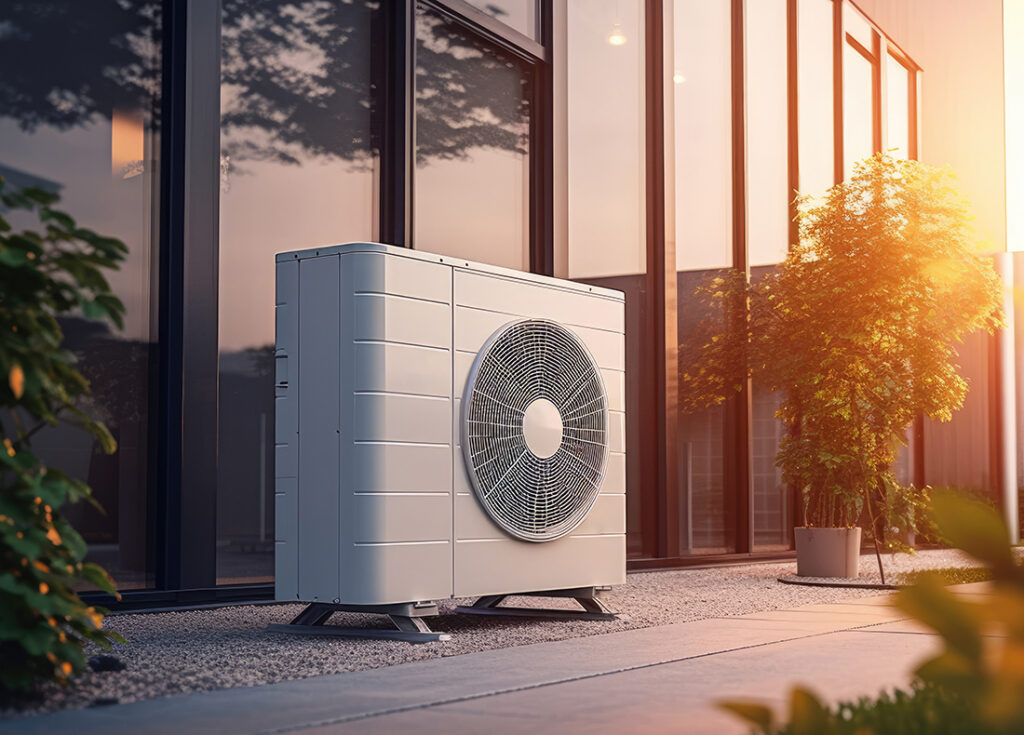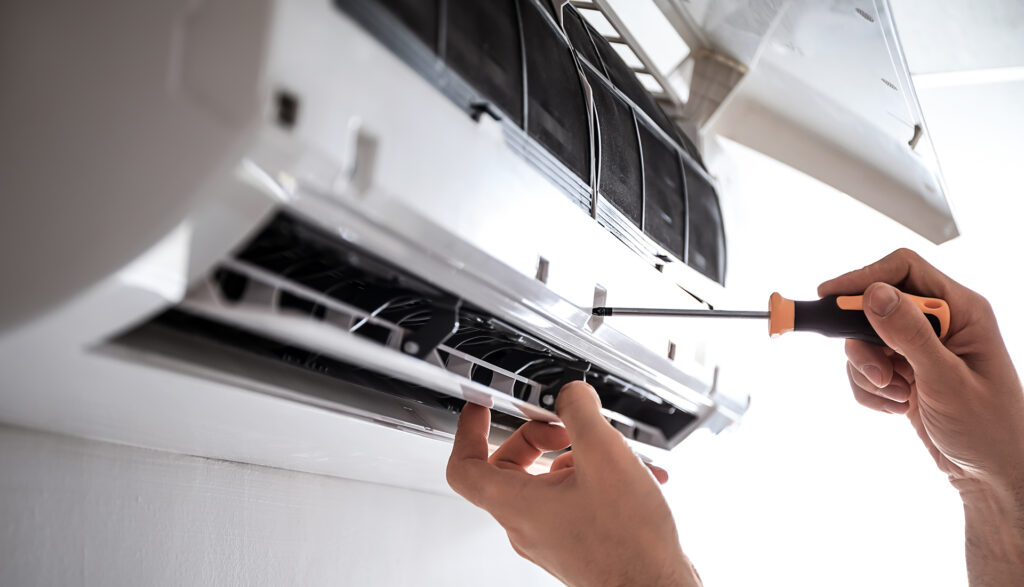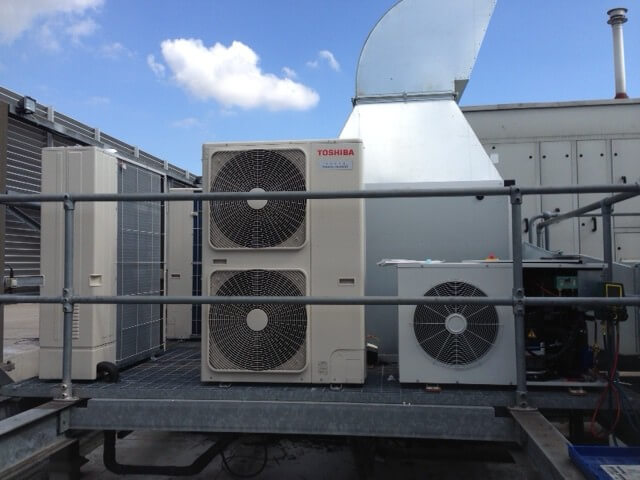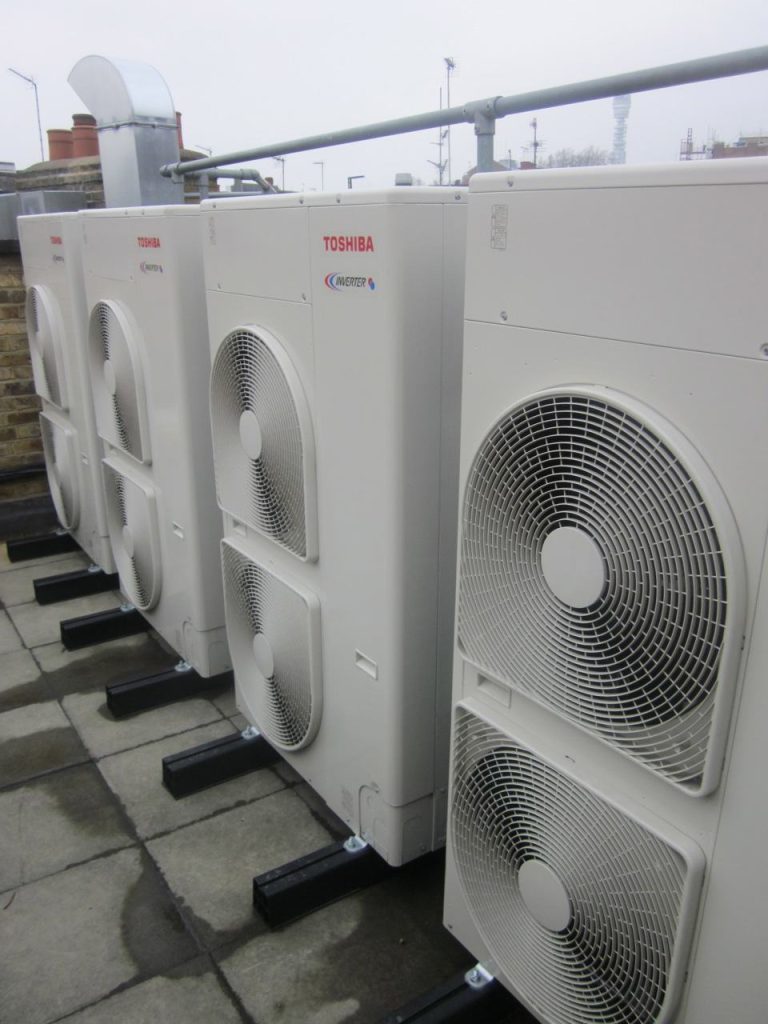Air Conditioning Is Important As Another Amber Heat Alert Is Issued
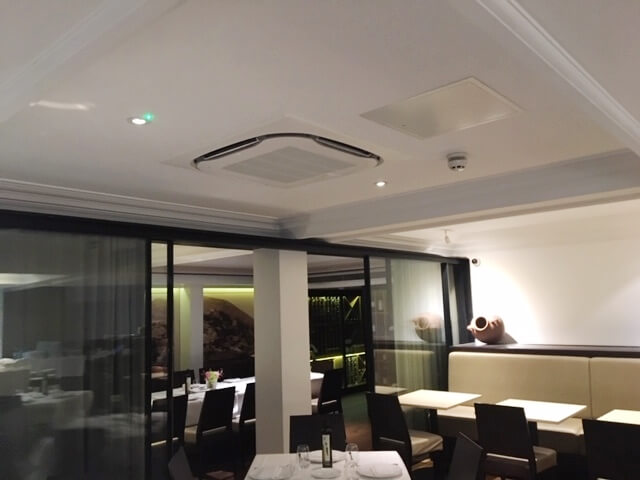
Estimated reading time 11 minutes
As predicted and in a previous article “Is Your Air Conditioning Ready For 2023, Predicted To Be One of the Hottest Years on Record?” 2023 is proving to be one of the hottest years on record.
Despite the fact we are now into the autumn, the UK has experienced temperatures 4°C higher than Ibiza, Ayia Napa and Athens and faced the hottest day of the year so far when temperatures at Heathrow reached 32.7°C (90.86F). For the first time on record the UK has recorded temperatures above 30°C for 7 consecutive days in September.
As a consequence of the ongoing heatwave the UK Health Security Agency (UKHSA), which is responsible for health and social care sector alerts in England and the Met Office have issued an Amber Heat Health Alert (HHA) in 8 regions of England. The regions included are London, the South East, the South West, the North West, the East Midlands, the West Midlands, the East of England and Yorkshire and the Humber.
The UKHSA published update “Heat-Health Alerts issued by UKHSA and the Met Office” states that “under the new HHA system introduced by UKHSA and the Met Office, an amber alert means that weather impacts are likely to be felt across the whole health service. At this level, we may begin to see some health impacts across the wider population, and an increase in risk to health for individuals aged over 65 years or those with pre-existing health conditions, including respiratory and cardiovascular diseases.”
Dr Agostinho Sousa, Head of Extreme Events and Health Protection at UKHSA, explains: “Many of us will welcome the hot weather for the coming days, but it is important to take sensible precautions while enjoying the sun and look out for those who are more vulnerable to the effects of heat. We advise you to check on older family members, friends, or neighbours and those with heart or lung conditions. Staying hydrated and keeping cool is crucial for everyone during hot weather, while enjoying the sun.”
Health Heat Issues
When the external temperature is high our bodies need to work harder to maintain our internal temperature. Sweat is vitally important for body temperature regulation. When the body senses that its internal temperature is outside the norm, the hypothalamus, a region in the brain, signals to the eccrine sweat glands to produce sweat. The sweat that’s produced on the skin needs to evaporate to release heat. This is achieved using the body’s excess heat to convert the sweat to vapour which enables the body to cool down.
According to the Met Office “The UK has a higher level of humidity than the European continent” and “it is harder for the human body to keep cool as your sweat doesn’t evaporate as quickly”. When the surrounding air water content is high it prevents your body from sweating to release heat. If the body can’t sweat and release its excess heat it will overheat.
Physical Health
The UKHSA’s “Come rain or shine, adverse weather matters for our health” states that “there is a strong evidence base showing us that periods of very hot weather present a wide range of direct and indirect health risks.” It goes onto say that “temperatures above 25ºC are associated with excess heat-related deaths, with higher temperatures associated with even greater numbers of excess deaths.”
We know that high temperatures (and humidity) can severely impact our physical health and can cause heat exhaustion which includes dehydration, muscle cramping, headaches, fatigue, feeling faint and fainting, dizziness and nausea. Heat can also worsen long term cardiovascular and respiratory issues and increase the chances of other health issues including heart attacks, strokes and breathing problems. Heat stroke can also occur which can involve confusion, seizures, and loss of consciousness. High humidity can also leave you feeling lethargic, dehydrated, suffering from heat exhaustion, heat stroke, fainting and muscle cramps.
Gregory Wellenius a Boston University professor of Environmental Health and director of BU’s Program on Climate and Health explains: “Hot days can lead people to suffer from dehydration, heat exhaustion, and in extreme cases, heat stroke. But hot days are also associated with higher risk of a number of other conditions that are not typically thought to be “heat-related,” such as [kidney] problems, skin infections, and preterm birth among pregnant women. In fact, heat stroke, heat exhaustion, and dehydration account for a relatively small fraction of the total [health risks] associated with days of extreme heat. And interestingly, it’s not just extreme heat that poses a risk. Even moderately hot days can place vulnerable individuals at higher risk.”
He also goes onto say that “A growing body of evidence suggests that days of high temperatures may negatively affect our mental health. For example, a recent study in New York found that hot days were associated with higher risk of… mood and anxiety disorders, schizophrenia, and dementia. Other studies show that hot weather is linked to lower performance on standardized tests, higher risk of judgment errors, and higher risks of occupational injuries.”
Mental Health
The New York study above is backed up by new research carried out by Imperial College London which showed that increasing temperatures and heatwaves are linked with an increase in “hospital attendance or admission for mental health disorders, poorer non-clinical mental health and wellbeing in the community, as well as an increase in suicides.” In a paper published in The Lancet Planetary Health, the research brings together on the impacts of ambient outdoor temperature on mental health and wellbeing.
Dr Rhiannon Thompson, lead co-author and Research Associate at Imperial’s School of Public Health, said, “Many people don’t realise that there are mental health risks associated with heat, in addition to physical health risks. Although, when you consider some of the possible ways this could happen, like sleep disruption and increased stress, it makes a lot of sense. Physiological changes, such as alterations in blood flow or serotonin levels, can also be impacted by high temperatures, which may disproportionately affect individuals with pre-existing mental illnesses, who, for example, may already struggle with temperature regulation due to psychiatric medication. It’s important to raise awareness of these links so that healthcare and public health systems and professionals can respond and be prepared during hot weather, and so that we can look out for ourselves and each other during these increasingly common periods.”
Who Does Heat Impact?
We know that heat impacts certain members of the population more than others. According to the UKHSA “older people aged 65 years and over, babies and young children aged 5 years and under” or those suffering from underlying health conditions are more at risk.
According to the Centers for Disease Control and Prevention older people are more prone to heat stress as they are less able to adjust to sudden changes in temperature. They may also have a chronic medical condition that changes their normal body response to heat and in some cases, they may be taking prescription medicines that affect the body’s ability to control temperature or sweat.
We also know that children are more likely to be impacted by heat as they sweat less reducing their ability to cool down. They are also less likely to recognise the need to rehydrate or take action to allow their bodies to cool down. This is borne out by an article published by The New York Times “New Research Shows How Health Risks to Children Mount as Temperatures Rise” which highlights a comprehensive study which looked at the effect of high temperature on people aged 18 and under. The study analysed the data of four million trips to the emergency department and found that around 12% could be attributed directly to temperature. However high temperature could also be the cause of other conditions that presented e.g., heat stroke, heat exhaustion, bacterial intestinal infections, ear infections blood, immune and nervous-system diseases.
Clearly high temperatures can have an impact on health if they are not mitigated. One of the ways to ensure that temperature is closely controlled is through air conditioning in the home.
Home Air Conditioning Systems
Home air conditioning is an easy and energy efficient way of replacing a traditional boiler central heating system, while introducing advanced temperature control. There are a number of very affordable options available to homeowners and property developers with energy ratings of A+++, helping you keep your energy bills down, while having a positive impact on the environment. Some of the types of air conditioning units available for home air conditioning installation are outlined below:
Single Split AC unit
- For all size properties.
- One indoor air conditioning unit connects to an outdoor unit.
- Heats and cools a single room.
- Unit type: wall mounted, ceiling cassette or ducted.
- App and voice control options available.
- Additional outdoor units can be added for extra rooms and simultaneous heating and cooling.
- Up to 10-year warranty.
Multi Split AC unit
- For all size properties.
- Up to five indoor air conditioning units connect to one outdoor unit.
- Heat or cool with advanced climate control.
- Auto.
- Unit type: wall mounted, ceiling cassette or ducted.
- App and voice control options available.
- Additional outdoor units can be added for extra rooms and simultaneous heating and cooling.
- Up to 10-year warranty.
VRF Air Conditioning
- Ideal for large properties.
- multiple indoor air conditioning units connect to one outdoor unit.
- heat and cool multiple rooms simultaneously.
- Unit type: wall mounted, ceiling cassette or ducted.
- App and voice control options available.
- Heat recovery options available for improved efficiency.
- 7-year warranty.
Home Air Source Heat Pumps
Air source heat pumps can also be used to cool and heat your home. Advancements in air technology mean the latest home heating systems are eco-friendly and will save you money on your energy bills. There are installation incentives too, which means the installation costs could be a lot less than you think. There are several types of air conditioning units that have been designed to subtly integrate with your interior décor. They are:
Wall Mounted Air Conditioning Unit
Wall mounted units come in slim and compact options and are available in a variety of colours and patterns to suit your interior décor.
Ceiling Cassette Air Conditioning Unit
Cassette air conditioning units fit within the ceiling, but you will need sufficient space in the ceiling void to accommodate the unit and pipework.
Floor Wall Mounted Air Conditioning Unit
Floor wall mounted units can be fitted at a similar level to a traditional radiator, making them ideal for conservatory applications.
Vented Air Conditioning Unit
Vented air conditioning units are hidden within the walls or ceilings of a room; therefore, they are best suited to a larger renovation project or new build.
Home air conditioning is an efficient solution to heating and cooling your home, while improving the internal air quality. Whether it be conventional air conditioning or an air source heat pump installation, high temperatures can be easily controlled so that your home temperatures, either as a whole building, or room by room, can be temperature controlled. Providing you with a safe haven during heatwaves and high temperature days.
Synecore
Synecore is a home air conditioning installer in Kent, London, Surrey, Sussex, Essex. We provide installation of high-quality products from leading manufacturers. Our customers also benefit from our 7 year warranty when they sign up to our cost-effective air conditioning maintenance plan that offers complete peace of mind.
At Synecore we offer the best solutions for your home air conditioning installation. We can design and install air conditioning throughout your entire property, or we can focus on individual zones. Either way, we’ll find the right application for you.
If you are looking to install a new air conditioning installation or need to replace an old system, contact our team or call on 01795 509 509. We’ll talk you through your options and provide you with expert advice on the right office air conditioning system for your home.
